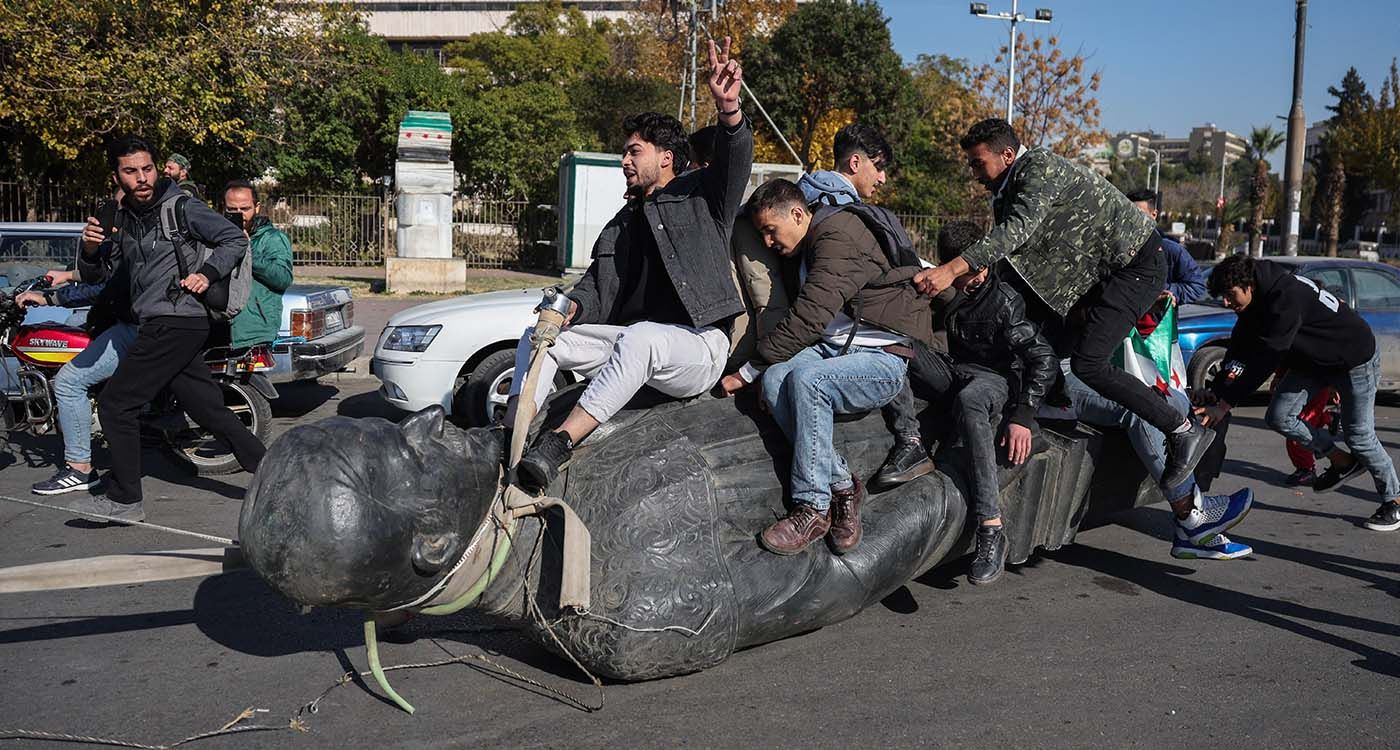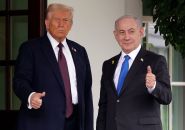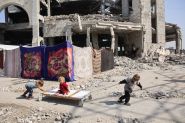- Home
- Middle East
- Syria’s Future and the Shifting Tectonics

©Omar HAJ KADOUR / AFP
Syria’s political plight is at the crossroads between potential disintegration, renewed civil instabilities and eventual reconciliation, which helps overcome the bitter legacy of a long-haul civil war. The downfall of the Assad regime is of good omen since it sets an end to the excruciating travails bequeathed by a bloody dictatorship and its legacy of death camps, wanton violence and unleashed savagery. Aside from the fact that it has demonstrated its disinclination towards national reconciliation, political accommodation and normalization. This regime was deliberately doomed and was unlikely to be considered as a partner in any future peacemaking plans.
It was a misplaced expectation to bet on its willingness or ability to convert and pave the way for alternative courses. The new military and political dynamic ushered in by the Israeli counteroffensive strategy lies at the origin of this abrupt and transformative change. The Islamists who took over are facing multiple challenges related to their dependency towards Turkey and Qatar and their mutating political objectives, their ability to manage the inter-Islamist rivalries, deal with the post-war critical legacy, and tackle the thorny issues of civil concord and working governance in a country with no moral and political compasses whatsoever after one and a half decades of open-ended conflicts.
Their meteoric rise to power betrays the treacherous state of an unraveling country and its inability to rebuild itself away from the successive political patronages. The country’s de facto division unveils its fractured ethnopolitical landscape and the absence of a working political dialogue to address the protracted conflicts and their incidence on political stability and peace. The Islamist takeover has taken place at a time when the regional military and political dynamics were systematically overhauled after the defeat of the Iranian power projections throughout the Middle East and the remodeling of the geostrategic matrix actuated by the Israeli counteroffensive. The incremental political voids and the emerging political dynamics they elicited are incipient and call upon meticulous observation to identify their ongoing modulations.
The accommodating political statements of the HTS Islamist coalition reveal the difficulties awaiting them down the road now that the Alawite dictatorship has irreversibly withered away: the criminal legacy of the Islamic State is of no help and by no means instructive. Their internal differences are to be tackled first and foremost if they are to offer a stabilizing framework in a country that badly needs it. The challenges of political stability defy their ability to overcome their ideological mandates, stifling dependencies and readiness to engage in the monumental assignments of political reconciliation, reformed governance and international normalization.
They can never succeed in their undertaking unless they forswear their ideological blinders and strategic ballasts and open themselves to democratization and gradual liberalization. The very fact that Ahmad al-Shareh committed himself to normalization, political inclusiveness and institution building impels the launching of a consequential political dynamic. The rightly suspicious international community needs tangible proof to overcome its reservations and respond to the statement of intentions and its underlying subtexts.
The Islamist coalition has to expand into a pluralistic and inclusive partnership, regrouping the various aisles of the Syrian opposition, the religious tapestry and the Syrian diaspora. It must work on building an overarching national platform that prepares for a national convention to decide over the future of Syria. Any ideological diktat can turn forthrightly into nihilistic violence and outright Islamic totalitarianism. The accommodating political posture has to display its readiness to re-engage the critical questions of national reconciliation, transitional justice, reformed governance and international normalization beyond the ideological templates of Islamism, its ideological mandates and its imperial hubris if it is to deliver on whichever political promises it has made.
The credibility test is a prequel to any further engagement with the regional and international community. Otherwise, the Turkish and Qatari power politics, rather than being instrumental in addressing the pitfalls of a hazardous conflict, are likely to add to its destructive potential and restart the cycles of violence. The Islamist coalition is quite aware of the incoming challenges and knows how serious the questions of institutional engineering are, how dire the issues of destroyed infrastructures, urban and rural settlements, massive displacement and return of the displaced are, how much war poverty there is and how important the assistance of the international community is in the post-war reconstruction. By and large, if the Islamists are going to fall back on their old playbook, Syria is invariably doomed and retreating behind the iron walls erected by the late bloody dictatorship and its Islamist heirs.
They should avoid the temptation of an Islamic dictatorship, learn the hard lessons of their failed dystopia and reconsider their political priorities on the basis of a pragmatic agenda mandated by the tragic conditions bequeathed by the criminal dictatorship and its nemeses, the destructive war and the unresolved questions of civil peace and systemic reforms. HTS has to realize that the cycles of violence have to end by giving up on its ideological delusions and turning away from their imperial fallacies. Rebuilding a country around working political and public policy choices is the shortest road to a normalized life earnestly sought by Syrians who have no other aspiration but to recover peace and rebuild their country and life conditions.
Read more




Comments